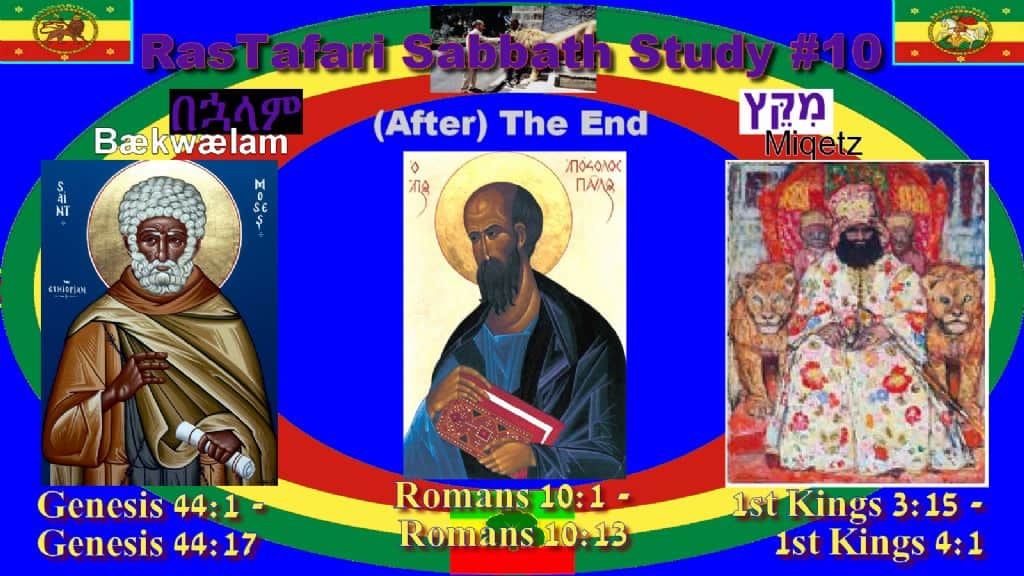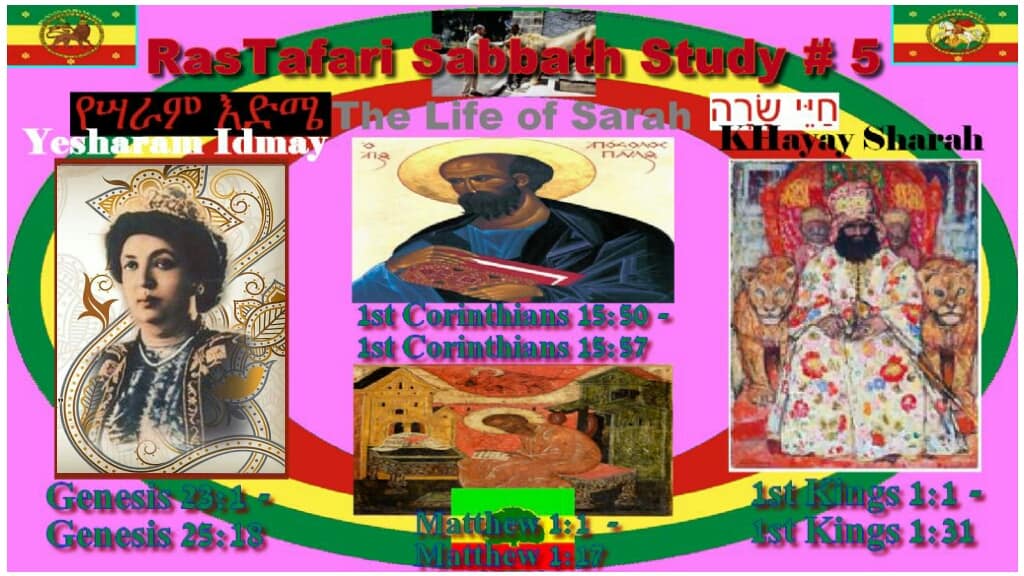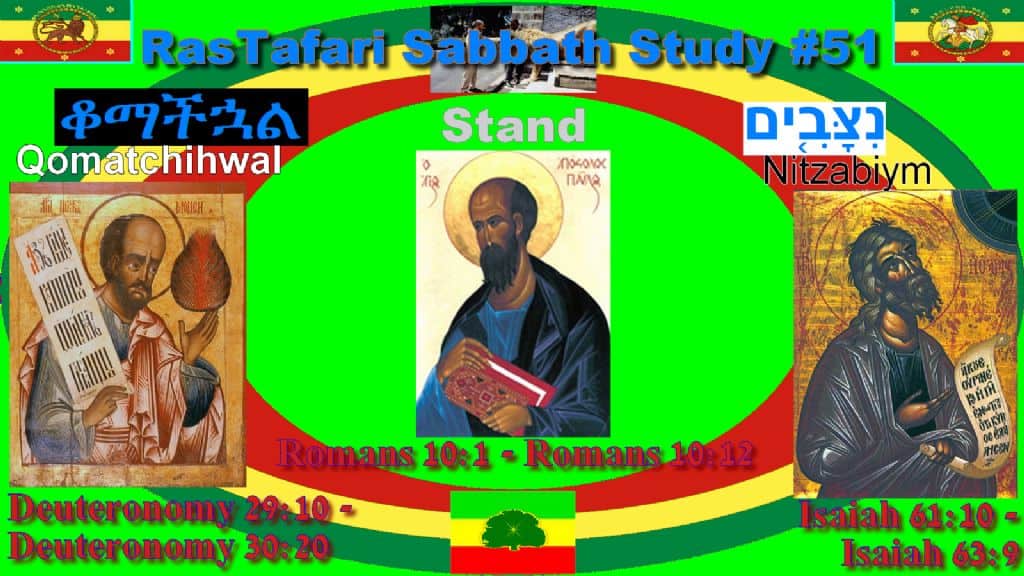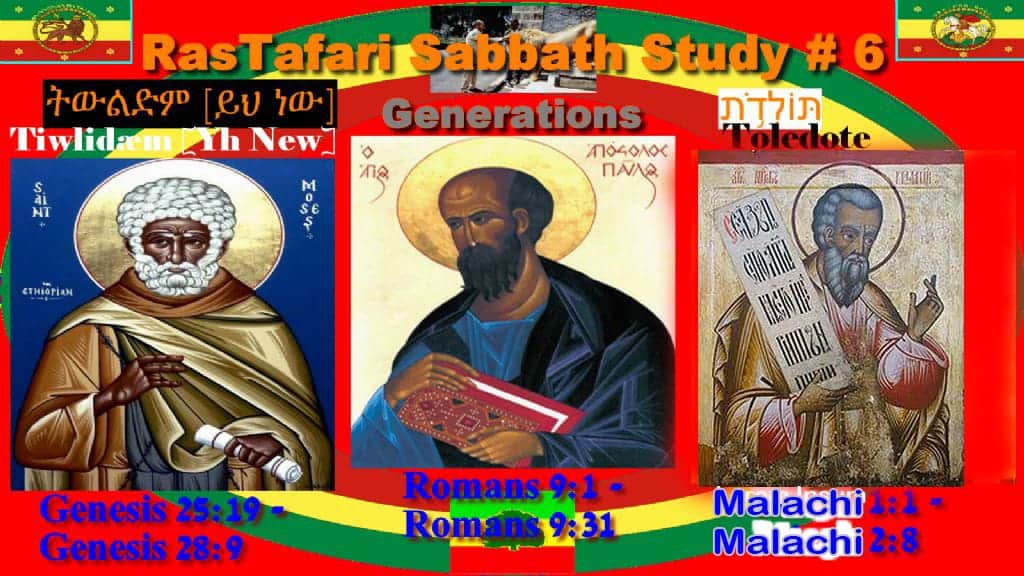This Week's Portion #10
Miketz | מקץ | "At the end of" በኋላም | BeKhw’allam
*For a PDF version of All the Torah Portions Schedule, click here to download!
2. Prophets Reading
1 Kings 3:15-4:1; Zechariah 2:14-4:7
3. New Testament Reading
Romans 10:1-13
Portion Outline - TORAH
- Genesis 41:1 | Joseph Interprets Pharaoh's Dream
- Genesis 41:37 | Joseph's Rise to Power
- Genesis 42:1 | Joseph's Brothers Go to Egypt
- Genesis 42:26 | Joseph's Brothers Return to Canaan
- Genesis 43:1 | The Brothers Come Again, Bringing Benjamin
- Genesis 44:1 | Joseph Detains Benjamin
Portion Outline - PROPHETS
- Zechariah 2:14 | Interlude: An Appeal to the Exiles
- Zechariah 3:1 | Fourth Vision: Joshuahua and Satan
- Zechariah 4:1 | Fifth Vision: The Lampstand and Olive Trees
Portion Study Book Download & Summary
 BEREISHIT Hebrew Book of Genesis - Torah Portion Vol.1 (FREE PDF)
BEREISHIT Hebrew Book of Genesis - Torah Portion Vol.1 (FREE PDF)
The tenth reading from the book of Genesis is named Miketz (מקץ), which means “the end.” The title comes from the first verse of the reading, which says, “Now it happened at the end of two full years that Pharaoh had a dream” (Genesis 41:1). The portion begins with Pharaoh’s portentous dreams, Joseph’s interpretations and his subsequent rise to power over Egypt. When a famine strikes the land of Canaan, his brothers come to Egypt seeking grain, but they do not recognize Joseph, who engineers a means by which he can test their character.
Portion Commentary
This Too Is For the Good
Thought for the Week:
Accept the things that happen to you as good, knowing that apart from God nothing comes to pass. (Didache 3:10) We know that God causes all things to work together for good to those who love God, to those who are called according to His purpose. (Romans 8:28)
Commentary:
The life of Joseph demonstrates God's sovereign hand in human lives. Though the world seems to follow a completely random course around us, God is actually working out His purposes in the midst of it. From Joseph's point of view, there was no reason to suspect that God had his best interests in mind. Joseph had been kidnapped and betrayed by his own brothers, sold into Egypt as a slave, falsely accused of attempted adultery and imprisoned in a dungeon. His life seemed to be following Murphy's Law of "if anything can go wrong, it will." So far, everything had gone wrong.
Joseph stubbornly clung to an unshakable confidence in the God of his fathers. Even though everything had tumbled down around him, He kept looking to God and believing that God was working through the chaos. He never fell into depression or despondency because he always believed that he was right where God had placed him.
This can be compared to the story of a rabbi from the days of the Apostles named Nacham. Everyone called him "Nacham This-Too" because, no matter what happened, he would always say, "This too is for the good." Amazingly, God honored his faith by continually providing miracles for Nacham. Once it happened that Nacham This-Too was serving as an ambassador to Rome. He was presenting the Roman Emperor with a gift from the people of Judea in an attempt to bribe him into reversing some anti-Jewish legislation. While en route to Rome the chest he stopped at an inn. While he slept, the inn-keeper stole the precious treasures meant for the emperor from Nacham's chest and replaced them with sand! Nacham went to Rome, unaware that he was carrying a box of sand. When the emperor opened the chest and saw the sand, he ordered Nacham to be put to death. Nacham simply replied, "This too is for the good." Just then Elijah the prophet appeared in the guise of a Roman officer and suggested that perhaps the sand was "magic sand." The emperor agreed to test the theory, and indeed, when his troops hurled the sand at their enemies, they prevailed in battle. The emperor immediately released Nacham, reversed his decree against the Jews and rewarded Nacham with great wealth.
The story of Nacham This-Too is a good illustration of Joseph's story. Like Nacham This-Too, Joseph refused to be pushed around by life's circumstances. Instead he looked to God for strength and encouragement, and he kept on believing.
In this week's Torah reading, we will see how Joseph's this-too-is-for-the-good type of faith was rewarded and how his fortunes changed.
Middot U'Mitzvot (Character and Deeds)
Giving in Secret
It might seem that Joseph was actually nursing a grudge against his brothers when he accused them of spying and sent them back to Canaan to get their brother Benjamin. If that were the case, he would not have had their money placed back in their sacks. He shows his love for his brothers by bestowing secret charity on them. Prior to their departure, he instructed his servants to secretly return the money that each of the brothers had paid for the grain. The brothers left Egypt unaware that they were carrying their silver back home with them.
The Master says that when we give charity, it should be done Joseph-style:
But when you give to the poor, do not let your left hand know what your right hand is doing, so that your giving will be in secret; and your Father who sees what is done in secret will reward you. (Matthew 6:3-4)
Joseph wanted to give his brothers a charitable gift. He knew that the famine conditions in Canaan must be creating financial hardship. Rather than announce the charitable deed with a fanfare of trumpets, though, he secretly had the money slipped into their bags.
Maimonides (Rambam) explains that there are different levels of giving charity. One of the lower levels of giving charity is when the deed is known to both the giver and the receiver. A far higher level of charity is secret charity. The person who gives charity secretly does so only for the sake of love. He knows that no one will be able to thank him. He will not earn any reward in the eyes of men.











































































































